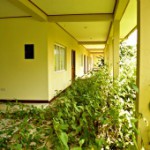There is confusion over who is in control over the referendum after a number of contradictory messages from the government and Special Majlis. The doubt focuses on whether Elections Commissioner, KD Ahmed Manik, has issued a regulation to the parliamentary committee organising the referendum over the future system of government.
An 11 member parliamentary committee in the Special Majlis has issued a report with its recommendations for the referendum. The committee, which is made up of 10 MPs from the government Dhivehi Rayyithunge Party (DRP) and one independent MP after the opposition MDP boycotted the group, proposes to hand control of the referendum to the Elections Commissioner whose work falls under the remit of the President’s Office.
Article 3 of the Committee’s report, which was recently distributed to MPs, says: “The referendum shall be carried out by the Elections Commissioner in accordance with Article 132 of the Maldivian Constitution. The Commissioner shall pursue this task in accordance to the regulation on public referendums by secret ballot 2006, issued by the Commissioner of Elections’ office on …2006â€
The date when the Elections Commissioner’s office issued the regulation is not included in the document. Many MPs believe that is because KD Ahmed Manik has not yet issued the regulation, despite telling pro-government newspaper Haveeru this month that he had drawn it up and had sent it to the 11-man committee.
So far, only the committee claims to have seen the document, and they say it is “incompleteâ€. Nobody outside the committee and the Elections Commission seems to know what the ‘regulation on public referendums by secret ballot 2006’ says, or what it recommends for the referendum.
The Special Majlis rebelled against the wishes of the President on June 18 last year, when it voted to carry out a referendum instead of carrying out the reforms without public consultation. As a result, five committees were set up to arrange the vote on July 3.
Arrangements made by parliament originally planned the referendum for September 16 last year, but parliamentary wrangling caused considerable delay and it is still not clear when it will finally take place.
The five original committees did not last long, and were soon replaced by the DRP-dominated committee which now sits. On August 13 last year, the speaker of the Special Majlis announced that there were too many disputes within the five committees. He then sent the issue of how to conduct the referendum back to the floor of the Special Majlis.
In the debate which followed, the President’s appointee in parliament, Mohamed Saleem, proposed that instead of a committee system, it would be wise to entrust responsibility for organising the poll to Elections Commissioner, KD Ahmed Manik, whose department forms part of the President’s Office.
This effectively handed control over the referendum to President Gayoom under article 42 (f) of the Constitution, which says: “the President shall have the power to execute…(f) Holding public referendums on major issues concerning which the President requires to obtain public opinionâ€
Gayoom now has the power to decide the question, date and format of the vote.
Mohamed Ibrahim Didi of the Maldivian Democratic Party (MDP) argued that since the Special Majlis had initiated the referendum, it could not be taken over by the President, but his argument went unheeded.
Soon after, the government’s Dhivehi Rayyithunge Party (DRP – Maldivian People’s Party) was arguing the five original committees were illegal, despite many of the government MPs having been part of them. On 24 August, a vote of no confidence for the 5 committees, called for by the DRP, failed. 35 voted in favour of the committees, 18 against, with 15 abstaining.
But by 10 October in the 114th sitting of the Majlis, a motion was passed setting up a new committee which would cooperate with the Elections Commissioner in order to conduct the referendum, taking precedence over the five defunct original committees.
The MDP, angry that the referendum committees had been hijacked, boycotted the new committee and the opposition is not represented within the group. Despite the MDP’s boycott, the committee pushed ahead with its work with 10 DRP members and 1 independent.
The MDP now says it is willing to vote with the committee’s proposals for the referendum to speed the process up, but the question remains, what does the ‘regulation on public referendums by secret ballot 2006’ say?





